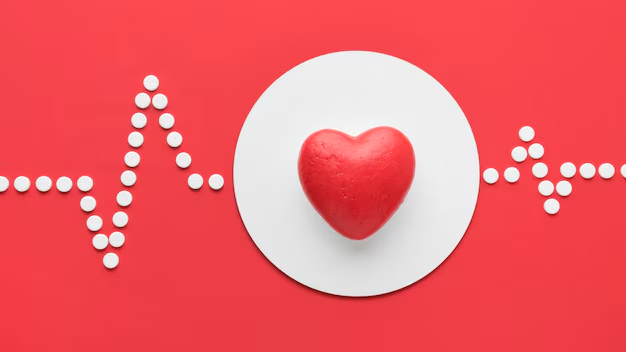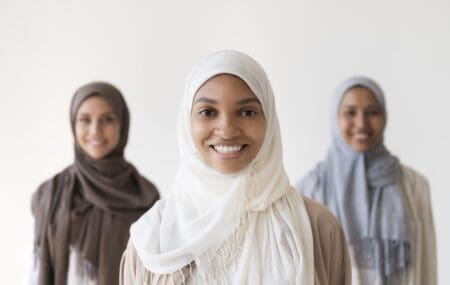
Harmony of Heart and Health: An Islamic Guide to Emotional and Physical Balance during Menstruation & Pregnancy
In today’s fast-paced world, many women struggle to find time to care for their physical and emotional well-being, balancing the demands of work, education, and family. Yet, it is crucial for women to prioritise their health, especially during specific stages of life such as menstruation and pregnancy. These phases often bring unique emotional and physical challenges and thus it is critical that we do not suffer in silence.
This blog explores the connection between emotional well-being and physical health, drawing insights from modern science and Islamic teachings to highlight the importance of a balanced lifestyle. By understanding this connection, we can better prioritise our well-being, achieve inner peace and strengthen our bond with Allah ﷻ, in shā’a Allāh.
Emotional and physical balance during the menstrual cycle
For many women, the menstrual cycle plays a significant role in both emotional and physical health. Typically, the cycle occurs about every 28 days, with periods lasting between 2 to 7 days, though this can vary from one person to another. Hormonal fluctuations during this time can also lead to Premenstrual Syndrome (PMS), which may cause symptoms such as mood swings, bloating, and irritability.
Islam adopts a compassionate approach towards menstruating women, recognising the toll it can take on their physical and emotional wellbeing. During this sensitive time, the obligations of prayer and fasting are lifted to allow you the opportunity to rest, focus on self-care, and honour your body. Far from being a punishment, this is a divine relief, reflecting the mercy and wisdom of Allah ﷻ. Islamic teachings also highlight the importance of wellbeing, hygiene, self-care and to ensure menstruating women are looked after during this time. As narrated by ʿĀ’isha (ra), the Prophet ﷺ would even rest on her lap and recite Qur’ān while she was menstruating, demonstrating that menstruation does not diminish one’s closeness to Allah or one another (Ṣaḥīḥ al-Bukhārī).
In order to enhance wellbeing during the menstrual cycle it’s important to look after both our emotional and physical health. Some examples can include:
- Eating a nutritious, well-balanced diet and staying well-hydrated to reduce fatigue and bloating during menstruation.
- If you experience heavy bleeding, incorporating iron-rich foods such as leafy greens, lean meat, nuts, and seeds to help prevent iron deficiency.
- Adding low-intensity exercise like walking, yoga, or gentle cardio for boosting your endorphins, improving your overall mood and energy levels.
Even when exempt from formal acts of worship during menstruation, maintaining your spiritual connection is essential. It was narrated by Abū Saʿīd al-Khudrī and Abū Hurayrah that the Prophet (ﷺ) said ‘’No fatigue, nor disease, nor sorrow, nor sadness, nor hurt, nor distress befalls a Muslim, even if it were the prick he receives from a thorn, but that Allah expiates some of his sins for that’’ (Ṣaḥīḥ al-Bukhārī 5641-42:75:2). This serves as an important reminder to stay connected to Allah and that even during challenging times we are rewarded for our hardship. Engaging in dhikr (remembrance of Allah), making duʿā (supplication), and exploring Islamic teachings through lectures or books are meaningful ways to keep your heart connected to your faith.
Remember, taking care of yourself during menstruation is an act of worship. By embracing self-care and nurturing both your body and soul, you honour the trust (amānah) Allāh has placed in you. May you continue to find strength, comfort, and spiritual growth.
Emotional and physical health in pregnancy
Pregnancy is a new chapter for many women and this comes with many joys, but also challenges. It’s completely natural to feel overwhelmed. But taking care of your health during this special period is beneficial for both you and your developing baby.
Islam holds motherhood in high regard, recognising its trials. In Surah Luqmān Allah says: “And We have enjoined upon man [care] for his parents. His mother carried him, [increasing her] in weakness upon weakness, and his weaning is in two years. Be grateful to Me and to your parents; to Me is the [final] destination” (Qur’ān 31:14). This verse serves as a reminder of the respect and gratitude for mothers and their sacrifices.
To support your well-being during pregnancy, it’s important to add a variety o activities to your routine. Consider maintaining your religious practices along with extra sunnah acts that bring calm and reflection. Praying, reciting the Qur’ān, and engaging in dhikr can provide moments of peace and help you prepare spiritually and mentally for the responsibilities ahead. This is also an ideal time to explore Islamic parenting resources — whether through books, lectures, or online materials — to deepen your understanding and readiness.
Alongside your spiritual practice, gentle exercise like walking or prenatal yoga, combined with adequate rest and a balanced, nutritious diet, can greatly enhance your physical and emotional well-being. Also, try to stay connected with those around you by sharing your feelings with family, friends, or your healthcare provider! Attending antenatal classes or joining support groups can help you feel less isolated and more supported. The NHS offers free antenatal classes, usually recommended between 30 and 32 weeks, which cover essential topics such as breastfeeding and baby care.Remember, Islam encourages seeking help during difficult times, and relying on Allah ﷻ along with the support of your loved ones can help you overcome any challenge. The Prophet (ﷺ) said: “A strong believer is better and more beloved to Allah than a weak believer, but there is good in both…” (Ṣaḥīḥ Muslim, 2664). This hadith underscores the importance of building physical and spiritual strength, even in times of physical strain such as pregnancy.
The importance of reflection and balance
Islam teaches us to cherish the invaluable blessings of health and time. The Prophet (ﷺ) said: “There are two blessings that many people are deceived into losing: health and free time” (Ṣaḥīḥ al-Bukhārī 6412:81:1). This wisdom holds special meaning for women, especially during menstruation and pregnancy, when maintaining good health can be challenging and free time may feel scarce due to physical and emotional changes. Being mindful of how we care for our bodies and manage our time is key to living a balanced life. These blessings — our health and our time — are entrusted to us by Allah ﷻ, and it is our responsibility to nurture them. Islam encourages us to make the most of these gifts by resting when needed, seeking support, and engaging in religious reflection. In doing so, we ensure that neither our physical health nor our time is neglected, even during life’s most demanding phases.
Balancing work, study, and personal life with wellness is essential for maintaining both emotional and physical health. Islam emphasises moderation in all aspects of life, reminding us not to sacrifice our well-being in the pursuit of worldly goals. Practical steps for incorporating self-care into your daily routine include:
- Pursuing activities that bring you joy: Whether it’s a hobby or spending time with loved ones, these moments help lower stress and enhance overall well-being.
- Setting aside specific times for prayer and reflection: This not only nourishes your spiritual life but also offers moments of calm and clarity.
- Engaging in regular physical activity: Simple exercises like walking or yoga can boost your energy and reduce stress.
- Maintaining a nutritious diet and staying hydrated: These habits help keep your body strong and your mind focused.
Conclusion
Our emotional and physical health are deeply intertwined, and this connection is particularly significant throughout the different phases of a woman’s life. By embracing both Islamic teachings and modern self-care practices, you can achieve a state of inner peace and resilience that honours your well-being. Whether during the menstrual cycle or pregnancy, maintaining this balance is crucial for living a fulfilling and spiritually enriched life. As you navigate life’s changes, remember that caring for your body and mind is not only vital for your health but also a beautiful way to draw closer to Allah ﷻ and fulfil your purpose as His creation.

